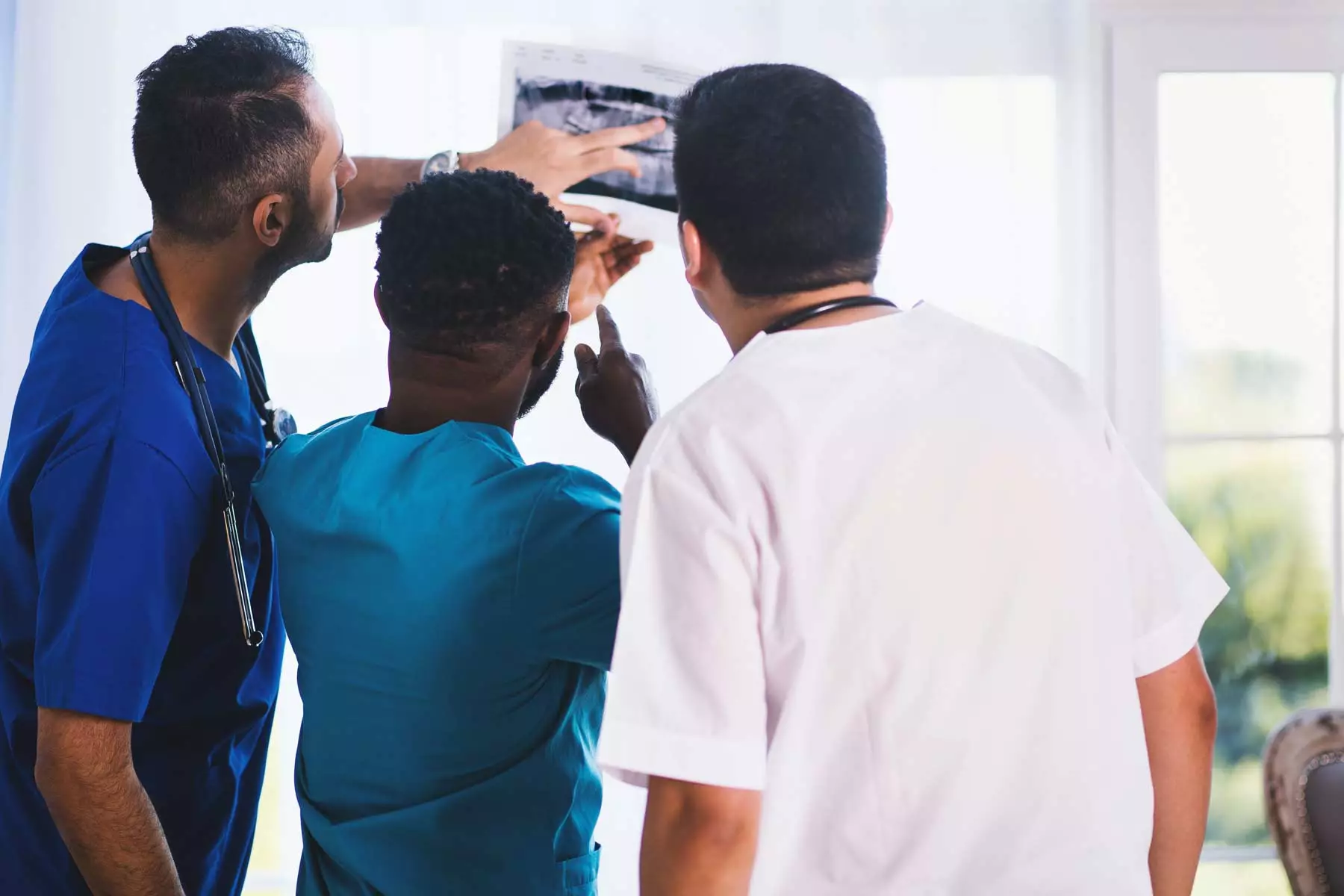With an estimated 77 percent of drivers being in a car crash at some point in their driving careers, knowing what to do after a car accident and what doctor to see after a car accident is important. It’s not uncommon for a driver who has been in a collision to feel confused and even unsure about whether to contact their insurer, a medical professional, or an attorney.
Table of Contents
ToggleShould You See a Doctor After Being in a Car Accident?
If you have been in a car accident, doctor visits are an important part of the healing process and part of filing a claim. Whether your injuries are relatively mild or serious, there are several reasons to seek medical attention:
- Some serious injuries may not be obvious. It can be dangerous not to see a doctor after a car crash. Traumatic brain injuries may have no initial symptoms but can still be life-threatening. Hairline fractures, soft tissue injuries like whiplash, and post-traumatic stress disorder (PTSD), among other injuries, may be discovered by a medical professional before symptoms are obvious.
- Doctors can address pain before it starts. When you’re in a car accident, your body produces adrenaline to protect you, but this hormone can also dull pain. Your body’s natural response to stress can mean you don’t feel pain for hours or even days after a stressful situation such as a car crash. A doctor can evaluate whether you have been injured and can help you get treatment for pain before it begins.
- Prompt treatment can help you heal more effectively. If you’re injured, your body starts to heal quickly, but without medical intervention, this can cause more harm than good. If you have a hairline fracture, for example, your bones may not heal correctly if they are not placed in a cast or splint. By getting medical attention, you can get timely treatment, which can improve your medical outcome.
- Doctors can document the injuries you have. After a car collision, if you decide to file a legal claim or an insurance claim, you will need evidence of your injuries. Medical reports carry weight with insurance companies and the courts.
Contacting a doctor after your car accident is an important way to care for your health and to strengthen any claim you may have. Even if it turns out you’re not seriously injured, talking to a medical professional can offer you peace of mind.
How Long After an Accident Should You Wait To See a Doctor?
Sometimes, it’s obvious you need immediate emergency medical help after an accident. At the accident scene, you may have a broken bone, a serious laceration causing bleeding, or other severe symptoms. If your symptoms are serious or life-threatening, call 911 for emergency help at the scene.
It’s more challenging if you feel you have been fortunate enough to walk away from a crash with no injury. In situations where a car accident survivor feels no symptoms, he or she may decide not to get medical treatment or evaluation. Unfortunately, this can be a dangerous mistake.
In 2019 alone, there were 61,000 deaths related to head injuries, and car accidents are a leading cause of this injury. It’s not uncommon for a patient with a brain injury to not experience any symptoms for hours after the accident. Tragically, by the time a patient starts to experience pain, it may be too late to prevent coma, complications, and even fatality. Even survivable injuries such as small fractures and soft tissue injuries can get worse if you delay medical treatment.
If you’re wondering what doctor to see after a car accident, you’re not alone. After all, there’s typically no specific car accident doctor at most clinics. A good place to start is your family physician but family doctors often will not see patients after car accidents. If it takes more than a day or 72 hours to see your doctor, consider an urgent care center, walk-in clinic, or emergency room, instead. Get in to see a doctor as soon as you can after your crash, especially if you suspect any injury.
What Should You Specifically Tell Your Doctor About Your Accident?
When you see a doctor, you may not get a lot of time to discuss your situation. What you say is important since your medical records can be subpoenaed if you make a claim. Sticking to the facts, you might want to tell your doctor:
- What happened. A doctor will better know what to look for if you explain whether your accident happened while you were on a highway or if it was a head-on or T-bone accident in an intersection. Explaining what happened will help your doctor evaluate what the most likely injuries may be. If any part of your body was impacted in the car accident, this is also important to share so the doctor can examine that part of your body for fractures or other injuries.
- Your medical history. Your doctor needs to know you have any previous conditions or injuries which could have been exacerbated by the crash. If you take medication, bring it with you if you can to your doctor’s appointment.
- Any symptoms you have had since the crash. Even if you think a symptom is unrelated, it could be important. It can be useful to jot down all your symptoms and medical history on a piece of paper to bring with you to the doctor’s appointment, so you don’t forget anything.
After a car accident, some drivers and passengers worry about sharing information with doctors in case it hurts their claim. In these situations, it’s important to be honest because withholding information can affect the quality of care and can harm your case even more. An attorney, such as a personal injury attorney from Johnson Garcia Law, can present your medical history in a way that supports your claim.
How Can Proof That You Saw a Doctor Help if You Were Injured and Seeking Recovery?
Insurance companies and their attorneys will examine medical records carefully. If someone delays medical treatment after a car accident or does not see a doctor about the accident specifically, defendants in a case may argue that the injury was clearly not serious enough to warrant treatment. In addition to trying to minimize the injury, they may try to claim that the injury was caused by something which occurred after the accident.
Seeing a doctor promptly after your crash shows you’re taking your injuries seriously and it creates documentation to help establish that the injuries were sustained in the accident. Continuing to attend doctor’s appointments and following all your doctor’s recommendations for treatment can also establish the fact that your injuries are serious.
How Can Johnson Garcia Help?
The legal team at Johnson Garcia understands how frightening a car accident can be. We’ve worked with many people who have suffered an injury in car accidents in Texas and in each case our goal is to work towards a fair settlement for these drivers and passengers. If you’ve been injured in a car accident, contact Johnson Garcia for a consultation.


